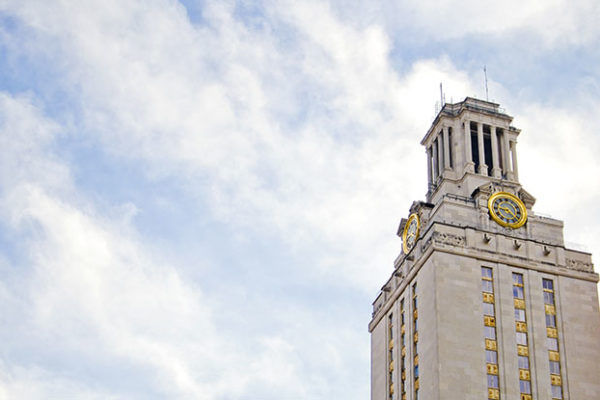AUSTIN, Texas — The University of Texas at Austin has collected additional information on a cluster of COVID-19 positive cases stemming from a large group primarily composed of students returning from Cabo San Lucas, Mexico, in March. Most of the UT students were on a trip organized by independent travel vendor JusCollege that included a number of additional students from other colleges and universities.
“This incident is an urgent reminder of the responsibilities students have to their communities, each other and themselves,” said Soncia Reagins-Lilly, the university’s vice president for student affairs and dean of students. “We are deeply concerned for the health of the students affected and for their broader impact on the communities where they live.”
In the course of tracing all known participants from UT and making contacts to ensure public health measures, the university, working closely with officials at Austin Public Health, is now aware of:
- 211 students from UT Austin who traveled to Cabo San Lucas during the spring break period March 14-19.
- This number (211) includes 178 students who participated in a trip organized by the travel vendor JusCollege and 33 who made independent arrangements.
- Of these UT students, 49 have tested positive for the virus that causes COVID-19 as of April 3. Although that total may still rise in days to come, it is thought that any further additions will be minimal, due to the low number of people potentially remaining to be tested from the UT Austin cluster.
- For people with positive tests, health officials directed self-isolation for a minimum of seven days from symptom onset and at least two days past the resolution of symptoms.
- People who were asymptomatic and had a negative test result were directed to self-quarantine for 14 days from last exposure, following established public health protocols.
The university is not aware of the total number of students from the other universities who attended JusCollege trips to the region. UT Austin urges JusCollege to reach out to the other universities whose students took part in their organized trips to ensure the level of contact tracing and outreach necessary to support the health of the participants and the communities they returned to.
Mexico was not under a federal travel advisory at the time of the trip. As spring break approached, the university strongly urged students to take extra caution, especially those travelling abroad. Although UT prohibited students from travelling abroad on university-sponsored programs, the university relies on students to act responsibly in matters of personal, non-university-sponsored travel.
Among measures taken to limit the spread of COVID-19, the university has moved all classes online, instructed students not to return to campus, canceled university events, and directed Austin-based students and employees to adhere to the city’s “Stay Home – Work Safe” order.
In a video message to UT students earlier this week, Dr. Terrance Hines, chief medical officer of University Health Services, stressed the importance of everyone following public health guidelines and practicing social distancing.
“Not only can it help young people from getting infected, but it can also prevent them – sometimes without symptoms – from passing the virus on to parents and grandparents and others in our community,” said Hines. “It’s also important to note that while many young people have only mild symptoms, many have had serious infections requiring hospitalization.”
After the initial announcement of positive tests from students on the Cabo trip earlier this week, some people have speculated online about the identity of participants on the trip.
Reagins-Lilly noted there is no indication that the trip was connected to any particular student organizations on the UT campus, and that people should be wary of spreading misinformation based on rumors.
“As we enter a new reality of working together remotely, relying on online tools, it’s vital that we show respect for one another,” said Reagins-Lilly. “We should resist the temptation to single out members of our community. COVID-19 is affecting all elements of our society, and fighting it depends on our abilities to unite as a community.”
The university urges all members of its community who have symptoms or have been exposed to COVID-19 to be screened for testing. Students can call the UHS Nurse Advice Line at 512-475-6877. Others can call UT Health Austin at 833-882-2737; call their physician, who can register them to be tested with Austin Public Health; call CommUnityCare at 512-978-8775; or access telehealth services (via Austin Public Health).
Members of the UT community can get answers to COVID-19 questions from a central webpage at https://coronavirus.utexas.edu/.




